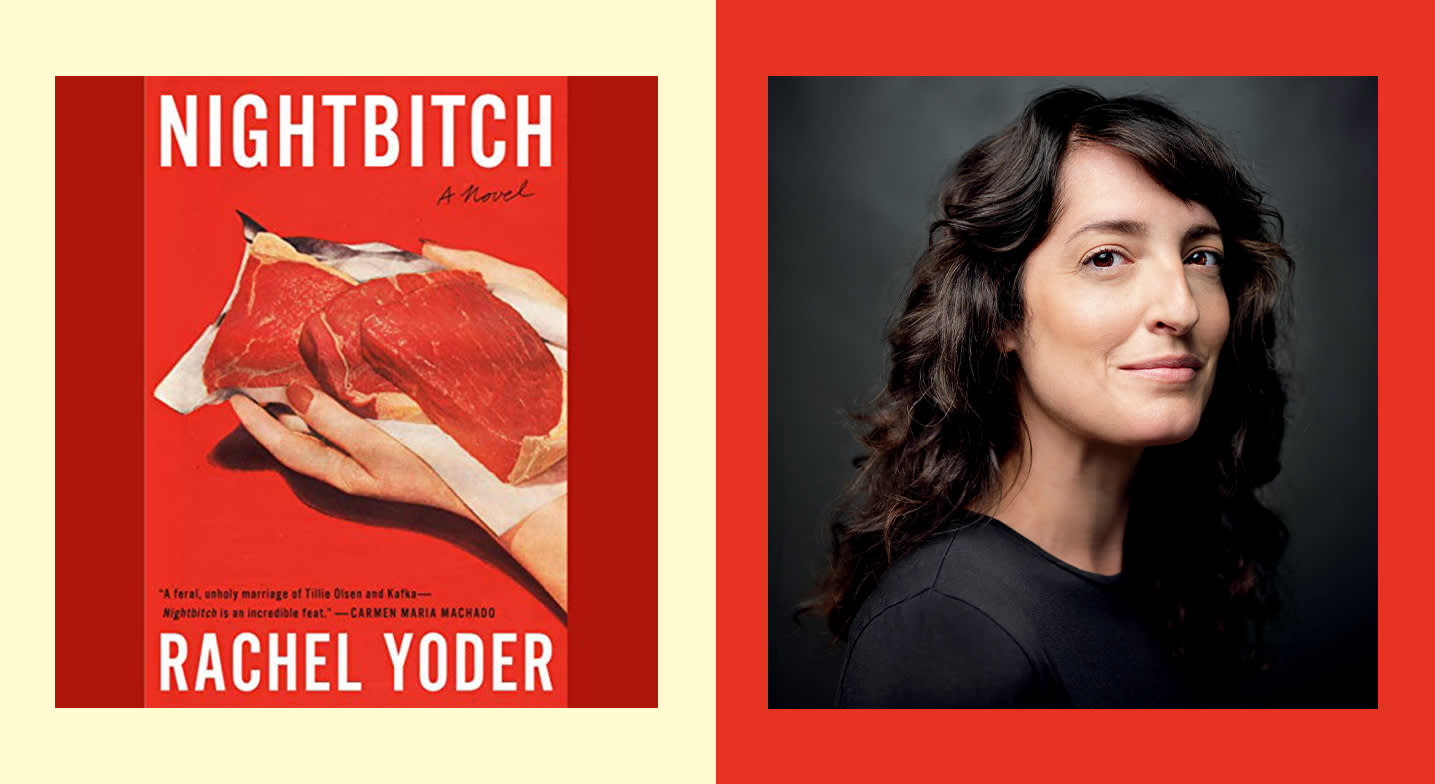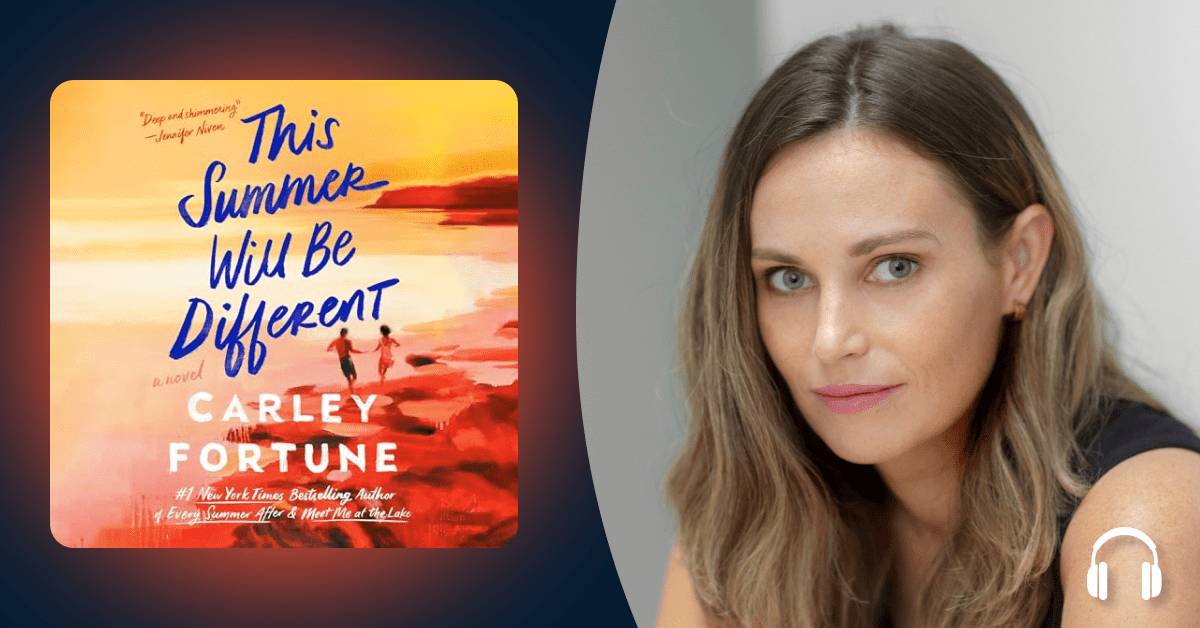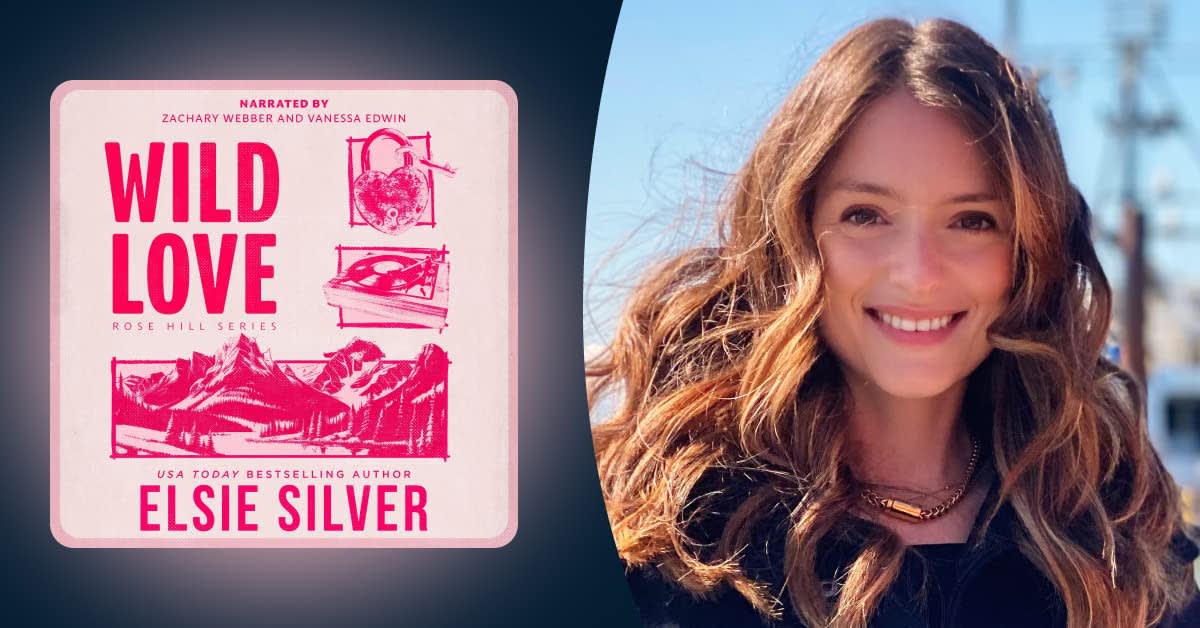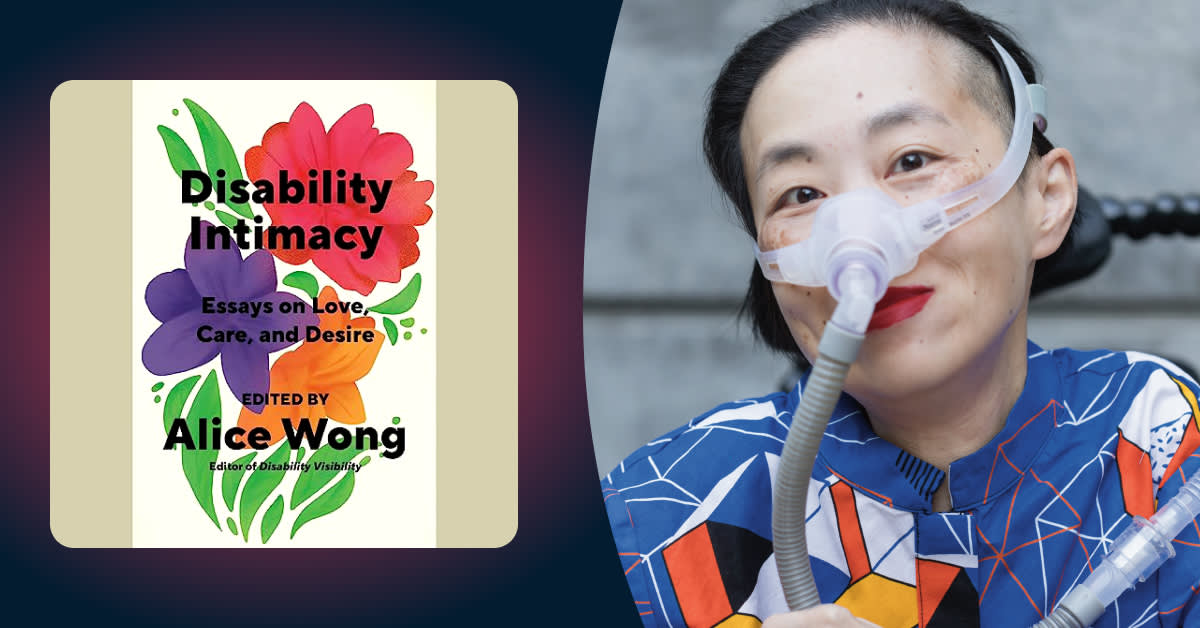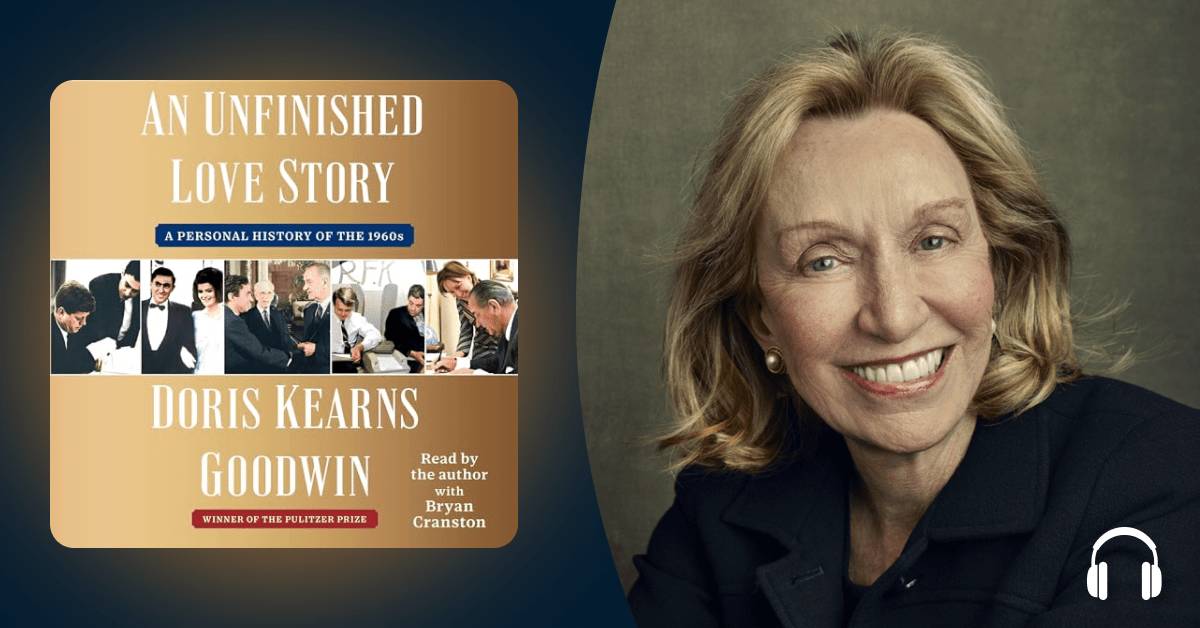Note: Text has been edited and does not match audio exactly.
Kat Johnson: Hi there. I'm Audible Editor Kat Johnson, and I'm speaking today with author Rachel Yoder, whose debut novel, Nightbitch, is the brilliantly surreal tale of a new mother who worries she might be turning into a dog. The audiobook is narrated by prolific performer Cassandra Campbell and has been optioned for a feature film starring Amy Adams. Welcome, Rachel.
Rachel Yoder: Thanks so much for having me.
KJ: Thank you so much for being here and thank you so much for writing this novel, because I loved it so much. This is the first time I've encountered a book about motherhood that is so wild and out there but also feels so true to life, at least in my own experience of early motherhood. I have so many questions for you, so I'm really excited to get started today.
The novel follows an unnamed new mother who's navigating the soul-sucking monotony of parenting a toddler after leaving a job in the art world to stay home full time. She's got kind of a clueless husband who's nice, but he's a little clueless. He's gone all week for work. There's a clique of local moms who are involved in an herbal pyramid scheme. And she's mourning the loss of her creative life when she starts to undergo some strange physical changes. She starts growing hair on her neck, her teeth get sharper, she starts to grow a tail, and it just takes off from there. I'm so curious how this idea and novel came about.
RY: Well, this book, which probably won't come as a surprise, is a very personal book for me. Obviously I never thought I was turning into a dog, but I was confronted with early motherhood and found it very challenging and it wasn't what I expected. A lot of the circumstances of this book mirror what I went through.
I had been writing for 15 years. I had two MFAs. I was a very ambitious when it came to my career. And then when we had our son, it just worked out that it made more sense for various structural reasons for me to stay home with him, which is not something I had ever imagined that I would be doing. I never thought of myself as a stay-at-home mom. I had an image for what that would look like.
The first couple of years I was home with my son I didn't write for the first time in my life. For two years. Nothing. There was nothing there, and it's not even that I didn't write; it's that I had nothing to write. My experience of early motherhood was one where I completely fell out of touch with my imaginative, creative world, which I find to be my life force. It's something that's really important to me.
"The first couple of years I was home with my son I didn't write for the first time in my life. For two years. Nothing."
I was in touch with this other life force, with motherhood. But I couldn't figure out how to turn it into something creative. How to make it work for me. I was mired in unarticulated rage, and after those two years the book just came to me as sort of a joke. My husband and I were joking around because I had been sleep deprived for a couple of years and got very nasty in the middle of the night if woken up. And he's like, "You're sort of being like a nightbitch," and I was, like, "Interesting idea." I didn't really think about it too much, but it just was provocative in a way that I found approachable, like, funny and weird, and that was my way back into writing.
KJ: It's so funny, because Nightbitch is the perfect title that I wondered, did the title come first? It's just so perfect. I really, really love that. For me it took me right back, because I did stay home also when my first child was a baby and a toddler, and so it really rang so true to me. But when I encountered your book, my kids are a little older now, I had actually just adopted a puppy. I have a pandemic puppy, and that experience brought back early motherhood for me in a way that was deeply uncomfortable. I also found that the book was so true to the dogness of dogs.
I was like, not only I'm relating to it on this parenting level, but also the canine level is just so vivid and true. I'm curious, why a dog? Why did you choose a dog?
RY: It was a totally random, not a thought-out decision. It was just something that felt right when I started and it came from "nightbitch," from the joke of nightbitch. Upon further reflection, the dog is the perfect animal, right? Because we've domesticated the dog, but still, I'm a little bit afraid of dogs. I like dogs, but they're not… I'm a cat person. So there's still a wildness to them, though. They can still bite you. They can still sort of go off.
And there's that tension that is really interesting about dogs. I also think it's drawing from the werewolf tradition and playing with that story. I think the dog fits because it's something that lives in our homes, is in our domestic space, but then also can have this really wild energy and chaotic wildness that really seemed to be the right metaphor for this mother.
KJ: Absolutely. Because, right, with a cat, they're graceful and elegant and clean, and you can't get at some of this violence and mess that you really get at in this novel. One of the things that I loved so much is your depictions of how messy and gross domestic life can be. I find especially with motherhood, it's so competitive, and when you see these depictions of how messy things are, like you talk about the gelatinous food in the high-chair and the son making eye contact with the mother when he's pooing, it's just so visceral.
It's lovely as a mom to feel seen by that, but I want to unpack a little: Why is the grossness so compelling? What are we getting out of it? There's something to gain from embracing that.
RY: I think it's there because this is also very much a story about the female body and about children as bodies. It's about the embodied understanding that I think women can move into when they move into motherhood. Because birth is… It's like the most intense physical experience.
You become very much aware that you are an animal. That you are this body. And then motherhood is you dealing with all of the realities of this little body that you're keeping alive, and all that that means. And so, of course, also Nightbitch’s transformation is something that happens in her body.
It's almost like I had been waiting my whole life to draft the novel.
This is to a certain extent like a body horror story, but I don't know if horror is the right word. …I was interested in this book in the ways in which [women] can become alienated from their bodies and what happens when we listen to our bodies, return to our bodies, because I do think that that is part of the way, that that's the path to how we can transform. How we can find a way back to ourselves, to our bodies.
KJ: I love that. I agree with you, one, that there's so many different things happening. There is horror, but it's very funny. I don't know where I would place it genre-wise. We do see a lot of these subversive motherhood stories, but what you're doing with body horror, it reminds me a lot of Jennifer's Body or Ginger Snaps. Those movies that deal with reclaiming the body in a feminist way through the lens of horror. I see it in the vein of, like, Carmen Maria Machado's Her Body and Other Parties. What were some of your influences in writing it?
RY: Yeah, you hit on it. Carmen Maria Machado was someone who was here in Iowa City and went to the workshop a little bit after me. I kind of knew her distantly and was really excited when I heard that she wasn't working in a realist tradition and immediately devoured her book when it came out and loved it. It gave me a lot of hope, because I was, like, oh, something that's drawing from myth and fable and fantasy can go mainstream and can be also embraced by the literary community. I absolutely loved her writing and was inspired by it.
I was also inspired by some of the absurdity and brashness of John Waters and his movies and the grossness. I think they're really funny and I think they're making big decisions, and I brought that sort of sensibility, at least in my thinking, about the book. Also, there's a movie called Jeanne Dielman, which is about the domestic and the repressed rage of the domestic and has this absolutely stunning ending.
I think I was just looking at a lot of film and books that were interested in the female experience, the mother experience, but then also in the ways in which experience is expressed through our bodies. I know I read The Vegetarian in the years leading up to beginning Nightbitch. Wild Milk by Sabrina Orah Mark, which is kind of based in fairy tale, but then is utterly original and singular in what it's doing. I'm one of those people who… I wander around, not just in literary realism, but I really like the slipstream sensibility and so was drawing from that too.
KJ: I don't want to spoil all the trouble that Nightbitch gets into, but suffice to say, running through the night with the wind in her fur, peeing on lawns and indulging her predatory cravings is, while violent and disturbing, also very freeing. Nightbitch had a particularly bloody evening one night and I want to play a little clip from the book where the narrator, Cassandra Campbell, is channeling Nightbitch's feelings afterward:
"More than medical attention or the psychotherapy, more than choosing happiness or adjusting her attitude, was to sink her sharp teeth into something living and bloody and feel its essence drain away until it was simply a rotting and unmoving thing. Not iron deficiency or episode. Nothing wrong with her. Just one night. One night of violence was what she needed. One night to not care what anyone thought. To shit where she pleased, to not be needed by any living thing and to be only a body in motion in the dark. A shadow, a ghost of herself who listened only to the mandates of her body."
KJ: Okay, first of all, I love her performance. But I would love if you could tell us a little about your approach to writing these kind of scenes, because I found them so freeing. Was it liberating to write about them? How did you tap into that? How did that work?
RY: First of all, I haven't heard the audiobook, so that was amazing. Cassandra is the perfect performer for it. My writing process for the book was really different from any other writing process. It was my first attempt at writing a novel—I had mostly written short stories—and my first writing after I had a baby.
It was very scheduled and it came in short bursts. I would go to the coffee shop for two hours and say, okay, I'm going to write a thousand words. And it just poured out. I really think the writing feels cathartic because it was a catharsis for me. It was me working out the last two years on paper and me letting a voice inside me rant, and this is the voice that had not said anything, had been silent, and so it was not hard to draft the novel whatsoever.
I was ready to draft it. It's almost like I had been waiting my whole life to draft the novel. I grew up in a Mennonite community. My dad was Amish when he was little. Being a woman has always been sort of a problem. It's been like the thing I'm trying to figure out: how to be in a way that works for me. Motherhood was always really terrifying to me because it felt like a trap. And marriage felt like a trap.
This book is really me taking a lifetime of thinking and not saying, and finally saying it. So it was just sprints. A thousand words a day for a month and then I wouldn't write for a couple of months. And then I'd do it again. A thousand words for a month. Jami Attenberg on Twitter does a #1000wordsofsummer, which is where I got started. I thought, oh, I'll join that. That really worked for me, so I just kept going.
KJ: I love that. I was going to ask you too because we share a love of Jenny Offill's Dept. of Speculation. When I was getting ready for this interview I saw that you said that you have been inspired by that book's depiction of the art monster. [Editor's note: In Offill’s novel, the female narrator says: “Women almost never become art monsters because art monsters only concern themselves with art, never mundane things. Nabokov didn't even fold his own umbrella. Vera licked his stamps for him.”] And by the way, Cassandra Campbell also narrates Jenny Offill's book Weather. So that's a nice little—
RY: Oh. Wow, yes. I totally should have mentioned Jenny earlier, because yes, her line about the art monster was really the seed for this book. It was. I read Dept. of Speculation when I wasn't writing deep in my not-writing phase. I actually took the time to open a document and type out that art monster passage and I thought, oh, I will write an essay about this. And I closed the document and I never wrote anything more.
But then Nightbitch kind of came out of that, because that is something I have thought about so many times, about this desire to be an art monster. This desire to just let your art consume you. Let your creative imaginative world consume you. I was like, is there a way to reconcile motherhood and monstrosity? There must be, right? There must be a way to continue both of those things, and I think, yeah, Nightbitch was me trying to figure out how motherhood and monstrosity actually work to be a creative and generative force.
KJ: I love that you were able to, even though so much time went by from you starting that document to completing the book. I mean, it's so hard. It's just so hard as a mother and as anyone to produce something creative, so it’s amazing that you were able to do it.
You said you had not heard the audio production, but did you have any involvement and in the selection of the narrator? Do you know anything about the audio process?
RY: I did. A producer suggested Cassandra Campbell to me and I went and listened to her a bit and she seemed exactly right. And that was pretty much as far as I was involved in the process.
KJ: Okay. So as I mentioned, there's a really powerful current of shared experience running through Nightbitch. I found that as a listener and then also within the story, Nightbitch finds solace and validation through a book called A Field Guide to Magical Women. Do you think that talking and writing about these shared experiences as mothers and women can be a form of activism? And can we harness this kind of communal relatability to actually turn it into action that creates change?
RY: I do think it is a form of activism and empowerment. I was so isolated in early motherhood and even to a certain extent still am, because it's… I don't know if we've really cracked the code for creating community in motherhood. It seems like, that's kind of where the MLM [multilevel marketing] mommies came in. I saw these sort of ways in which women were trying to be in community around motherhood, but I never wanted to be part of those.
"Nightbitch was me trying to figure out how motherhood and monstrosity actually work to be a creative and generative force."
I think it's because I wanted something genuine and embodied. I didn't want to be a wine mommy and numb out and escape my body. I wanted to lean into it. I wanted to have really authentic, honest conversations about the mess of it and the rage of it, and to be able to be in community with other women. I think that is my greatest hope for this book, is that it makes women feel less alone, and that we can start having these conversations about motherhood and power and patriarchy and what we, as women, what our role is in all of this and how we can change in ways that serves us within the patriarchy. How we can change in ways so that we feel empowered. How we can support each other. Because I do think the husband is a part of this book, but it's really an inside job for Nightbitch. This is all about her figuring out how to think about herself, how to treat herself. What to demand for herself.
That's really been my journey too. I think it's a lot of moms' journeys. We want a better way of existing and being together. How do we get there? How do we ask for what we need? How do we demand to be treated in a certain way? Community is a deep yearning for Nightbitch. It's a deep yearning for me. And it's a deep yearning for a lot of mothers. It's harder to take care of kids when you're not in a community. It's so nice to have a community of mothers where you can all come together.
KJ: Right. I think that's something you do really well, like the whole "Book Babies" crew. It's like motherhood always feels like this club that you're never good enough to be in, but then also you don't want to be in it. It's also not a cool club.
RY: Yeah.
KJ: So there's a lot of tension there that I think you explore really well and then that helps the animal theme. It's kind of like, wouldn't it be easier if we were just pack animals?
RY: Right, right. And I think too, yeah, that rings really true. It's not a cool club. That goes hand in hand with the fact that, like, the last thing I wanted to write was a book about motherhood. That just sounded horrible to me. But I'm, like, what is that? Why do I think that way?
Because I do think that motherhood is actually a doorway into not pastels and wine parties and MLMs, but it's a doorway into our power. Motherhood is actually really rad and really amazing and one of the most fascinating things about the human experience. I'm trying to challenge that too. Like, what if being in a mom group we're actually the coolest you can do? What would that look like? What would make it feel really vital and powerful?
So just trying to change even with myself how I think about motherhood. How I approach it. Because I do think that that's a patriarchal thing that's been programmed into me, and it's false. It's false. I hope that Nightbitch can bring that bravado to women as they move into motherhood.
KJ: I love that. Yes. Before, where it's talking a little bit about horror, it's been used a lot for, like, female puberty but not so much with motherhood. It's really fresh and there are definitely parts of the book where you're like, I don't know if this is making her a better mother or a worse mother. But it did leave me feeling ultimately optimistic, which I really appreciated. That by itself is awesome and I hope we can find some non-supernatural solutions, to find some answers to this.
RY: Me too.
KJ: What can you tell us about the upcoming film adaptation? I know you're adapting and executive producing, which is super exciting. What has that been like?
RY: That has been a brand-new process. I spent all of the pandemic writing an adaptation, which I don't know that I can recommend adapting your own novel during a pandemic for the first time. It was really hard, but I'm really glad that I did it. It's just been a slow process, because all of the industry was shut down last year, but we're starting to see some movement now.
Community is a deep yearning for Nightbitch. It's a deep yearning for me. And it's a deep yearning for a lot of mothers.
There might be some announcements coming in the next couple of months. It's been really an amazing experience in large part, because Annapurna optioned the movie and I'm working with a female producer and a female film executive, which is very rare for Hollywood, and pretty much everyone I've talked to about the project is a woman.
They all are incredibly committed to the project, for obvious reasons. I felt really taken care of, because I know that they get it, and they want to do it justice. I totally believe we're going to come out with something that's really cool. Honestly, going into Nightbitch… One of my dreams for this book, because it's about an artist, is that it would inspire not the book itself, but it might help a mom get back to her art, or help a woman get back into that imaginative, creative space.
With the film, that's been amazing, because there's these amazing women coming on who are going to move into their own art via this story. That feels incredibly gratifying, because it feels like it's creating community in that way, which I really love.
KJ: That's so awesome. I hope we have some cool special effects to look forward to. It's a werewolf movie, number one.
RY: I think everyone's really committed to it being absolutely bonkers, which makes me very happy.
KJ: I love it. I love it. So finally, you recently tweeted the most relatable sentiment in the world. You said, "Anyone else incredibly exhausted and unmotivated for no particular reason other than everything?" It's been a wild year and change for all of us, but I know with the publication of your first novel, as flashy as that is, I'm sure that comes with so many emotions and so much pressure. How are you feeling as you're literally unleashing Nightbitch into the wild? And is there anything else that you're working on that you can share with us?
RY: It's a really peculiar moment, I think, for a lot of people as the response to that tweet indicates. We have moved through this pandemic. A lot of people who want to be vaccinated are now vaccinated and it's almost like now is the moment where we're all finally feeling the pandemic, because we were just surviving it for its duration. Now that we finally have this moment to sort of feel relief, feel a little bit safer, I think we're all again feeling it in our bodies.
I don't know if it's depression, I don't know if it's sadness or grief. It's probably a lot of things. And I'm in that moment too. Sometimes I say, "Oh, well, Rachel, why are you feeling this way? You have a book coming out, you have so many things to look forward to." It's true. I'm very happy about all of those. But the film deal, the book deal, all of this happened during the pandemic too. So it's been this very solitary, quiet thing that I've been doing for a year. I haven't even really felt the joy of any of that in this past year. It hasn't felt real. So it's an interesting moment for me and I'm trying to embrace it and enjoy the onslaught that feels like is coming.
"I do think that motherhood is actually a doorway into not pastels and wine parties and MLMs, but it's a doorway into our power."
But also just trying to connect with people in genuine ways, and then quiet moments, because that's how the pandemic has changed me. It's really clarified what's valuable to me and what is important in my life. A book and success are absolutely great, but what I cherish are my connections to people, the communities that I've built, my family. I'm going into the book being published with a really good perspective.
I want it to do well, but I’ve already succeeded in my own terms. I wrote something that was really true to who I am, that I think's really crazy and weird, and that's a win in my book. It's just such a pleasure to connect with people like you and other women and hear what your experience has been with the book. So thank you so much.
KJ: Oh, well, thank you for that. That's so lovely and so human and so real, and I hope that you feel the full joy of it soon, because it brought me a lot of joy, and I think you should trust your instincts, because they're spot on.
Listeners, you can find Rachel Yoder's book, Nightbitch, on Audible right now. Rachel, thank you so much for being with us today.
RY: Thanks so much, Kat. It was a pleasure.
